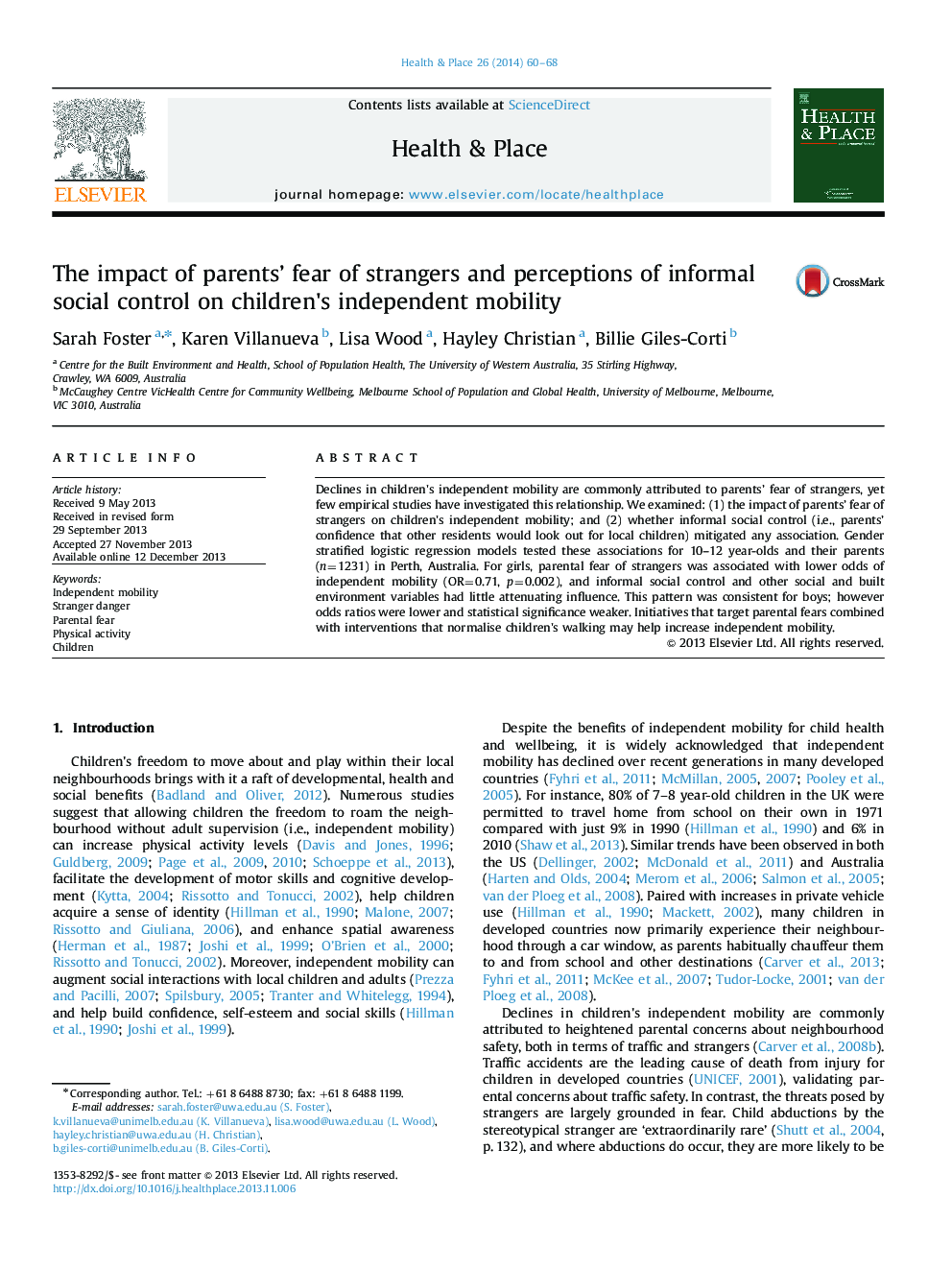| Article ID | Journal | Published Year | Pages | File Type |
|---|---|---|---|---|
| 7458742 | Health & Place | 2014 | 9 Pages |
Abstract
Declines in children's independent mobility are commonly attributed to parents' fear of strangers, yet few empirical studies have investigated this relationship. We examined: (1) the impact of parents' fear of strangers on children's independent mobility; and (2) whether informal social control (i.e., parents' confidence that other residents would look out for local children) mitigated any association. Gender stratified logistic regression models tested these associations for 10-12 year-olds and their parents (n=1231) in Perth, Australia. For girls, parental fear of strangers was associated with lower odds of independent mobility (OR=0.71, p=0.002), and informal social control and other social and built environment variables had little attenuating influence. This pattern was consistent for boys; however odds ratios were lower and statistical significance weaker. Initiatives that target parental fears combined with interventions that normalise children's walking may help increase independent mobility.
Related Topics
Health Sciences
Medicine and Dentistry
Public Health and Health Policy
Authors
Sarah Foster, Karen Villanueva, Lisa Wood, Hayley Christian, Billie Giles-Corti,
